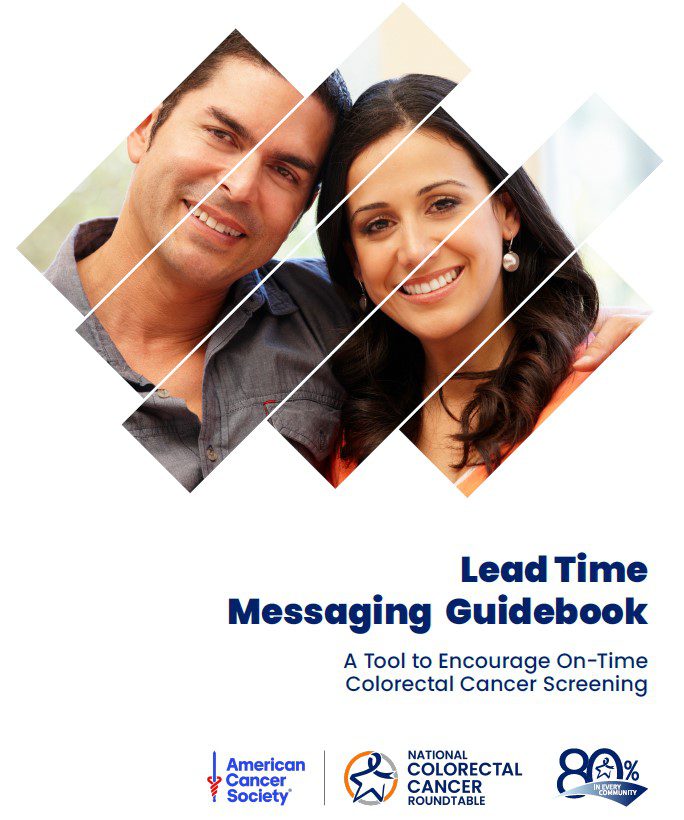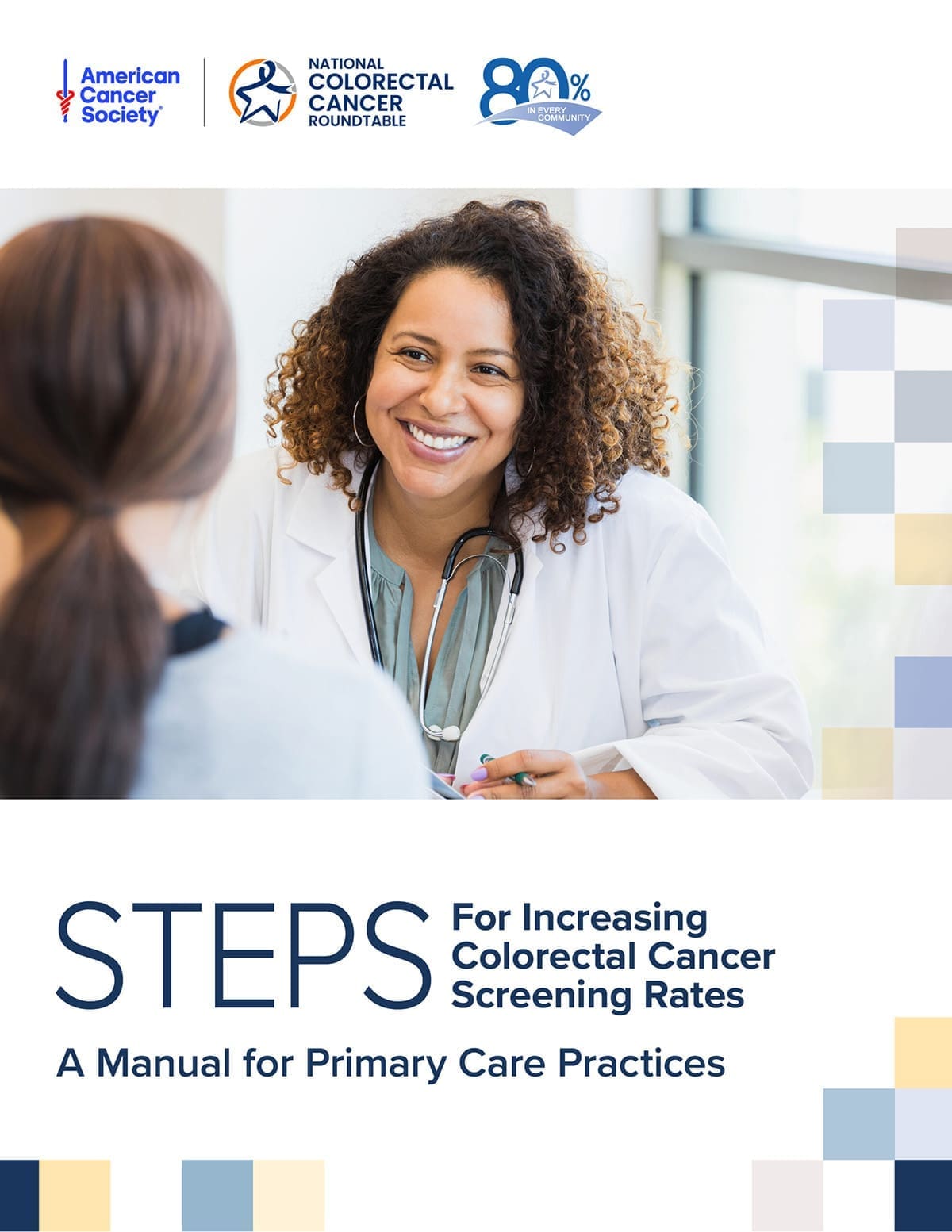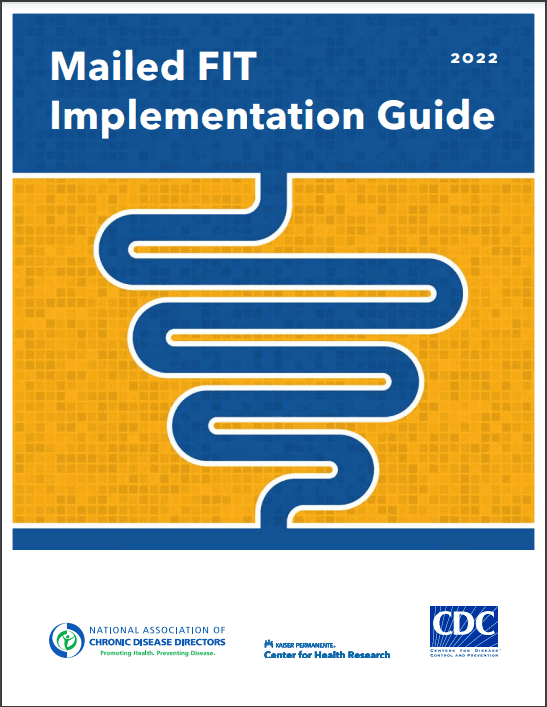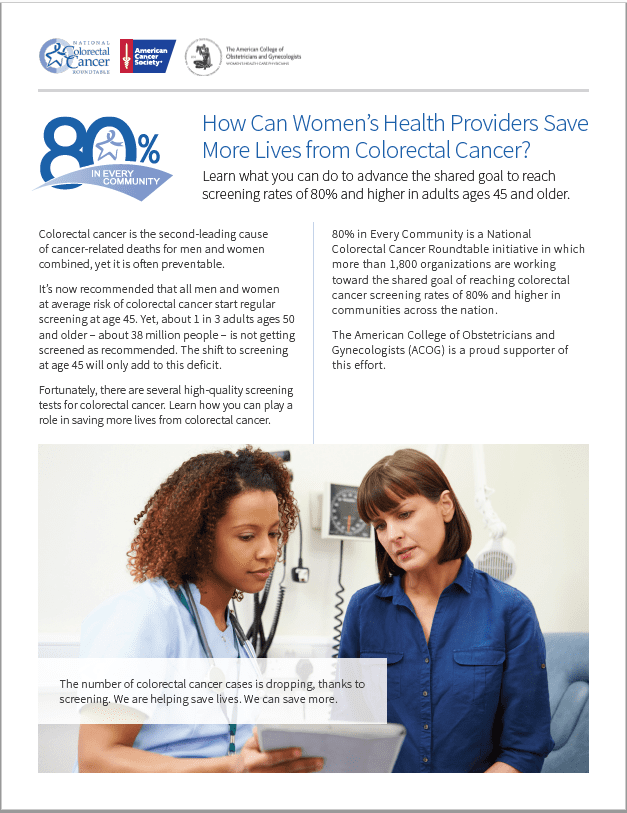Topic or Keyword: Clinician’s Hub

NEW!
New Resource Webinar: Lead Time Messaging Guidebook

NEW!
2023 Lead Time Messaging Guidebook

Blue Star Conversations – September 11, 2023

Steps for Increasing Colorectal Cancer Screening Rates: A Manual for Primary Care Practices

Blue Star Conversation – May 17, 2023

Webinar: Field Strategies To Increase Colorectal Cancer Screening And Promote Colorectal Cancer Health Equity In Communities Across The US

Mailed FIT Implementation Guide & Online Course

Webinar: 2022 NCCRT Steps Guide Update – July 25, 2022
